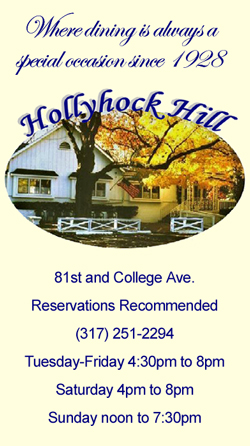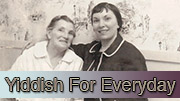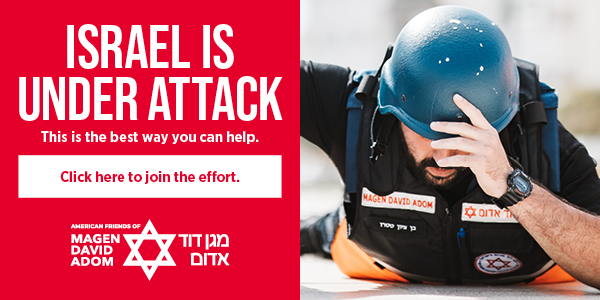[whohit] Variety of Interesting Stories[/whohit]
When we lived in Overland Park, I did my weekly shopping at the local supermarket, Price Chopper, or the one with the large kosher sections, Hen House, supplemented by the Wal-Mart neighborhood store. One of the stock items I bought was toilet paper most frequently four packs but sometimes more. This was a very private purchase that went into my grocery bag.
Coming to Israel, we discovered toilet paper sold in huge quantities – 32, 38, 40. Not having a car, we, like other people, lugged them home on the bus for all to see as there are no bags big enough to cover them. What a choice I had! Pink hearts, green hearts, solid yellow and solid pink-salmon. One day I asked the vendor, why no blue? He answered in all seriousness, blue and white are Israel’s colors. You can’t have toilet paper that color!
Well, while waiting for the bus the other day, by the shuk (market), what did I see? Blue butterflies and tulips on white background toilet paper, 32 to the package, so of course, I quickly bought it and schlepped it home on the bus, proudly exclaiming to Barry. Guess what I found?…
In November was Balfour Day and commemoration of Kristalnacht, and because of my having Government Press Office credentials, we were invited to the screening of the Avner Shalev Yad Vashem Chairman’s Award from the Jerusalem International Film Festival.
Human Failure is a fascinating documentary of what happened to all the property of Jews – registration, cataloging, assessing, monies added to national treasury and methodical efficiency showing in some cases who bought things at auctions. Archivists and historians, as well as several victims and their families, are part of the story, which relates the fate of not only the possessions but the homes, offices, stores, and factories.
Director Michael Verhoeven came to Jerusalem from Germany for the screenings and to answer questions from the audiences….
One morning we went to the Jerusalem Center for Public Affairs for one of their wonderful lectures. Willy Lindwer, a Dutch documentary filmmaker and television producer who lives in Jerusalem, had done a documentary on Marek Edelman, the last member of the Jewish high command of the Warsaw Ghetto revolt. Filmed in 1987, Edelman died Oct. 2, 2009 in Warsaw at the age of 90.
Edelman lived all of his life in Lodz although his wife and children lived in Paris since 1962. The documentary shows Edelman narrating what happened in the Warsaw Ghetto, day by day. Initially, 350,000 Jews had been sealed in the ghetto in 1940. By winter 1943, only 60,000 remained. Knowing the inhabitants were to be deported, a group decided to create a revolt, feeling that to fall in battle was an honorable thing; the Jews had arms for 300 against a well-armed group of 7,000 to 8,000 Nazis. Ultimately, around 40 escaped; when the documentary was made in 1987, there were eight to ten alive, most living in Kibbutz Lochamei Haghetaot. It was a powerful presentation about a complex personality, problematic from many points of view….
Over the years, I have compiled and edited eight kosher cookbooks and when the word got out at my synagogue, I found myself working on number nine. Three weeks after the cookbooks were available, the synagogue had a “launching.” Two congregants baked huge cakes using their recipes from the cookbook; coffee and soft drinks were there. Congregants and friends purchased about 40 cookbooks that evening while I autographed many of them.
The president gave a very nice thank you speech to me and presented me with a framed copy of the cookbook cover. I explained how we had put the cookbook together and thanked all who helped and then the American movie, No Reservations was presented. It really was a very nice and homey evening….
Thanksgiving is strictly an American holiday and people abroad are always asking us, do you celebrate Thanksgiving in Israel? Actually, a good number of Americans do celebrate it but on Friday night. Whole turkeys are hard to find and have to be preordered but I settled with large wings. Barry made his stuffing like a casserole (I mean, how do you stuff a wing!); we bought canned American cranberry sauce; I baked a real pumpkin pie (found the shell in the super market and brought with me some canned pumpkin). Actually, Israeli pumpkin, sold by the piece, works very well, and I use it often for pumpkin dishes. Sweet potatoes are plentiful, so that was it….
Standing Together
Someone once said every Israeli is a soldier and every soldier is an Israeli. Nowhere has this idea been more evident than in a project of David Landau started 25 years ago with his family.
David comes from Queens, New York; his wife, Sorra, is from Brooklyn and a midwife. They made aliyah in 1977 with three children. After a year in the merkaz klita (absorption center) of Mevaseret Tzion, outside Jerusalem, they heard “about an important place to build up” and moved to Kiryat Arba, the Jewish suburb of Hebron.
After living there 26 years and raising their eight children, who now range in age from 21 to 39, six years ago they moved to the Jewish community of Efrat – 15 minutes south of Jerusalem – to build a one-floor home for themselves and when their 18 grandchildren visit. There, David founded the Shomrei Efrat Kollel to post young men who had completed their Army service around Efrat, to continue religious studies and work as guards. He then moved the kollel to Kever Rachel (Rachel’s Tomb) for a couple of years.
In the meantime, 20 years ago he founded “Super Clean Chickens,” a home delivery service for chicken, turkey, glatt meat and fish.
Five years before, he had noticed the looks on the faces of the soldiers at Kever Rachel; “they looked scared. I realized their sacrifices, so I started going out every once in a while in a bullet-proof van taking them pizza and drinks.”
Then he and his family got the idea to set up a barbeque near a roadblock and share their food with soldiers. Soon people heard about what David was doing and wanted to come.
Someone sent pizza bags to keep the pizzas warm. Then someone told him about a donut machine that could make 200 mini donuts in an hour. In 2005, he bought the donut machine.
For the fourth year, this year National Donut week begins Dec. 7 in Israel. Funds raised by schools, organizations and communities will be used for supplies to manufacture donuts in the “Donut Mobile,” a traveling donut bakery, which will deliver fresh, hot donuts to 60,000 soldiers on bases around Israel for Hanukkah.
David then bought a truck and a trailer and “Standing Together” was moving forward. Soldiers expressed a need to charge their cell phones, so a friend rigged up a box with 36 outlets attached to the trailer. During the war up north in 2007, there was a need for socks and underwear and that expanded to soap and toothpaste which the trailer then carried.
David coordinates his project with Libi, which is part of the Army and is run by four officers and six volunteers at Tel Hashomer army base. (Libi is a fund for strengthening Israel’s defense by funding projects which improve the quality of life and enhance the well being of soldiers.) If soldiers on a base make a request, David passes it on to Libi, they check it out and if it is okayed, David goes out to secure whatever it is.
David tries to go out to Army bases twice a week and provides ice cream, pizza and drinks. The night trip usually starts at 9:30 p.m., taking out pizza to a base with volunteers who return about midnight or 12:30 a.m.
“The idea of someone coming to them, bringing pizza to a chayal (soldier), shows them someone cares,” says David.
He also takes out tourists and Dr. Elazar Jazz, leader of a band, who volunteers his time to bring up the spirit of the soldiers and others.
On the day we went out with him, we met at the entrance to Jerusalem by the gas station at 11:35 a.m. and headed in the SUV pulling the trailer filled with a generator; a freezer filled with fruit ices on sticks and energy drinks. There is also an espresso machine – “a cup of coffee for a chayal.”
“Espresso is different and special,” says David. Sometimes hot soup is also available.
After passing the road to the community of Maaleh Adumim, we meet up with a busload of leaders and members of the Beir Meir Yeshiva boys’ summer program. We head south on the four-lane highway, seeing Bedouin tents, camels, goats, sheep and a totally vast desolate area, much of it below sea level. Then we turn off onto a winding road for ten minutes, arriving at an Army base in the middle of nowhere.
After checking in, we drove from unit to unit. The yeshiva boys gave the soldiers stickers advertising “Standing Together” and David and my husband and myself handed out the cold drinks and ices and visited with the soldiers. The soldiers were so nice, so welcoming, so friendly. They welcomed the yeshiva boys showing them their tent and their equipment. They let one of the boys wear one of their fully-equipped vests and attempt one of the training exercises. They then put camouflage cream on the faces of a few boys and explained its use.
“Every time I go out, I get such a high from it,” David exclaims. He would ideally like to have this working all the time even though lots of volunteers are involved.
David would also like the summer and year course students, synagogue and organization missions, touring groups and individuals or families to make Standing Together campaigns part of their itineraries.
We were told we were participating in the “ice cream program.” David also initiated a campaign to send a Rosh Hashanah card to chayalim.
“This is a project; we’re not a business,” says David. “This is one to one with a chayal. They’re putting their lives on the line every day and we have an obligation to say thank you.”
By 3:15 p.m. the yeshiva boys are loaded on their bus and we are back in the van heading back to Jerusalem, feeling some of the high David feels.
To make a donation, to donate for the donut fund or to become involved with Standing Together, contact david@stogether.org.
Sybil Kaplan is a journalist, book reviewer, food columnist and feature writer who moved from Overland Park,






